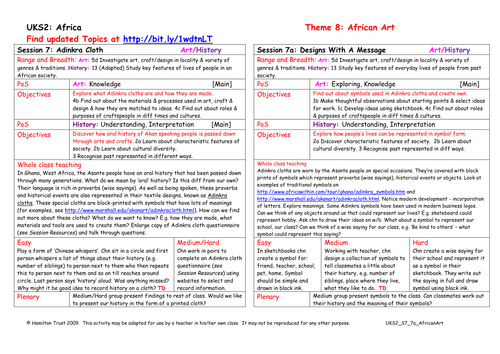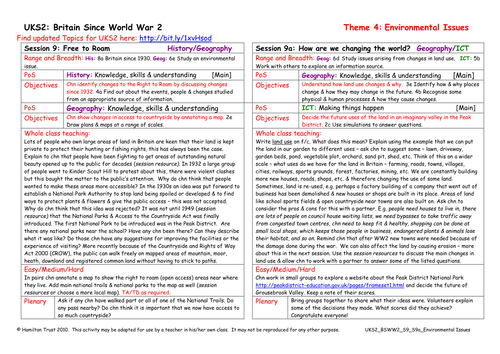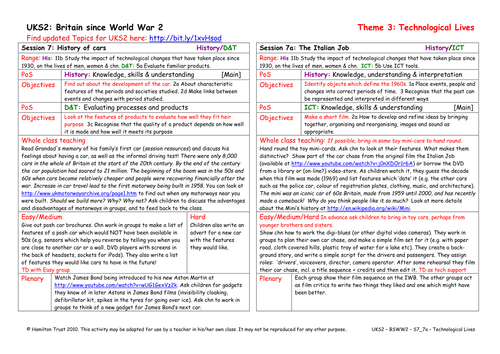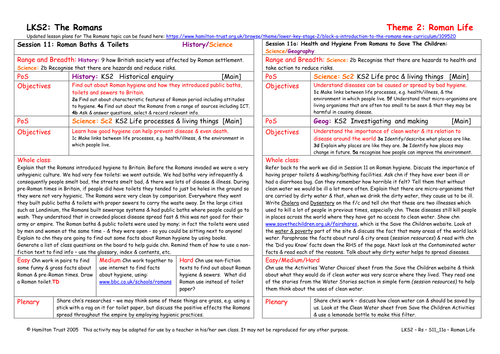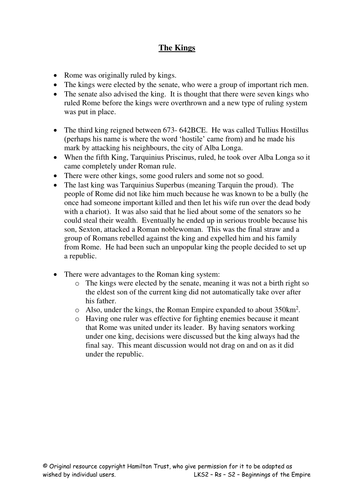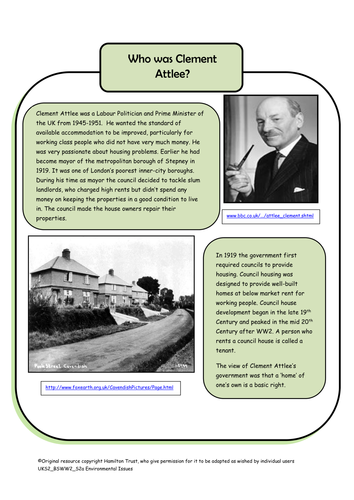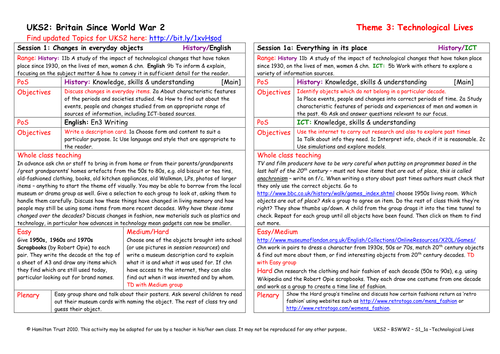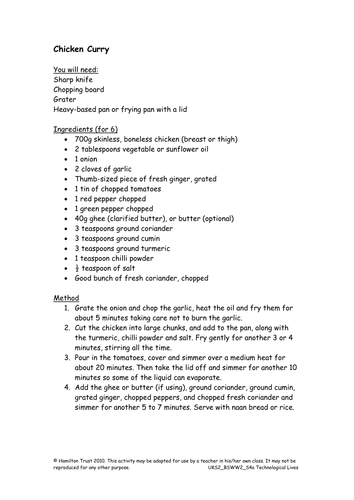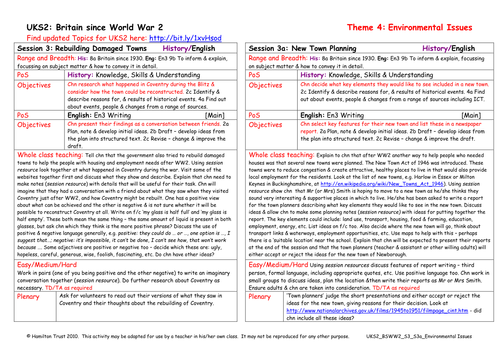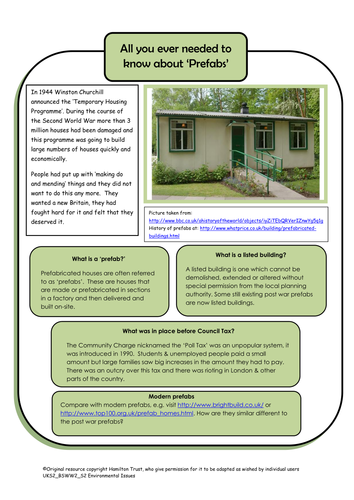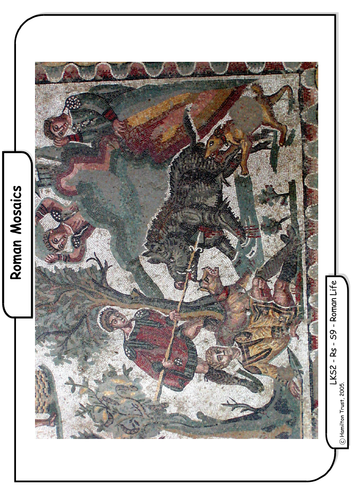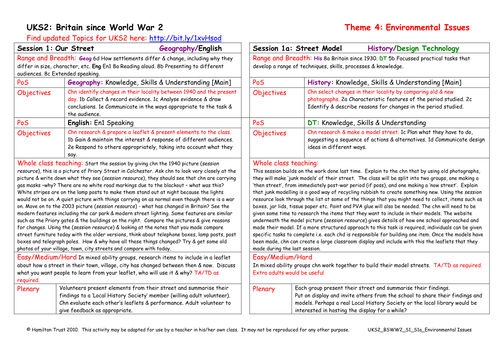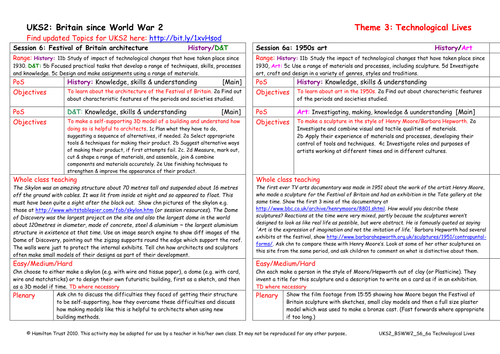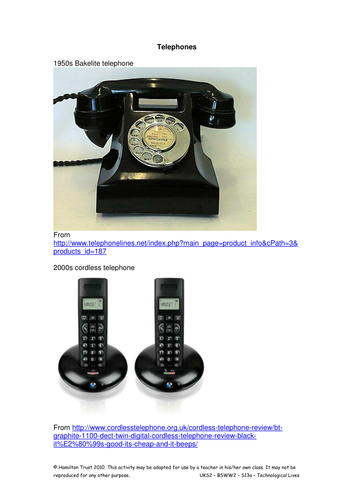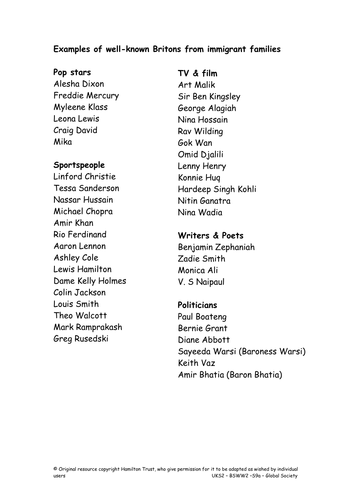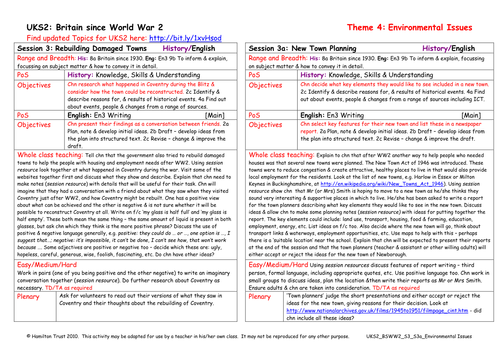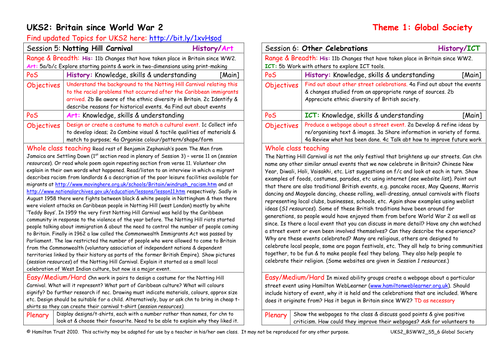
397Uploads
10040k+Views
11644k+Downloads
History

Adinkra Cloth
Moving to West Africa, children explore how history of Asante people has been represented through the craft of block printing Adinkra cloths.
Children use web research to find out about history, techniques and processes involved.

Free To Roam
In the past landowner’s have not wanted people to have access to their land. Children look at how the introduction of National Parks and Access to the Countryside Act 1949 has changed this. Children annotate a map showing ‘right to roam’ areas, trails, etc.

The Italian Job
Children watch a car chase scene from the original Italian Job and try and guess its date. They create their own car chase using toy cars and film to show the rest of the class.

Roman Baths & Toilets
In this session children look at how the Romans improved hygiene arrangements across the empire by providing clean water and drains for sewage. Children investigate Roman toilets and baths, and discuss the positive effects of these innovations.
Suitable for years 3 and 4.

Kings, Republic, Emperors
Children locate the Roman empire on a timeline and discuss how historians and archaeologists are able to piece together the facts. They look at the 3 systems of government: monarchy, republic and emperors, and debate advantages/disadvantages of each.
Suitable for years 3 and 4.

Council Houses
Children recognise the need for affordable social housing. Groups discuss different forms of affordable housing – council houses, tower blocks, housing associations, prefabs.
Feedback to class with pros and cons and decide which would be most useful after a problem.

Changes In Everyday Objects
Children look at every day objects which have changed since WW2, choose one and write a museum card for it.

Modern Day Meals
Children discuss their favourite meals, made a model/drawing of it as session 4. One group prepares a chicken curry. All taste this and vote for either the 1950s chicken meal or the modern day curry.

Rebuilding Damaged Towns
After WW2 many towns that were badly damaged in the bombing needed to be re-built. Children research what happened in Coventry and consider what could be done to help re-build and re-construct the area. Present their findings as a conversation between friends.

Prefabs
Children understand that millions of houses were destroyed during WW2 and they needed to be replaced. Houses were designed that were pre-fabricated. They were quick to build; thousands were put up in the 1940s/1950s. Children choose key info needed to sell a prefab.

Sporting South Africa: The Past
On 18th August 1964 South Africa’s invitation to the Olympic Games was withdrawn. What followed was nearly thirty years in the sporting wilderness. In this session children study key dates and events which are added to a timeline.

Researching Roman mosaics
Children research the internet and non-fiction texts and look for information about Roman mosaics. They talk about the images that Romans used in creating these, and then use a software package to create their own mosaics. Some chn do further research.
Suitable for years 3 and 4.

We Are Britain
We all have at least one thing in common – we live in Britain! Chn meet lots of different chn from all over the UK courtesy of We are Britain by B. Zephaniah. They see people move around the UK & other countries é they think about their own histories.
Suitable for Years 1 é 2.

Street Model
Building on previous session, children make a model of a street near the school (or from imagination). Class is split in two – one group make a ‘then’ model and one a ‘now’ model – using junk modelling techniques. Display along with leaflets previously made.

1950s Art
Children look at 1950s sculptures by Barbara Hepworth and Henry Moore and make their own similar model from clay.

Telephones
Children order pictures of old telephones. They decode, then write mobile ‘phone text messages.

The Festival of Britain
Children watch TV footage and research the festival of Britain. They make a postcard of their favourite part and write a message on the back about what they liked.

Well-Known Immigrants
Most immigrants who have come to Britain have brought skills with them. Many immigrants or descendants of immigrants have become well-known in the fields of sport, entertainment, politics and the professions. Children research and list examples.

New Town Planning
Find out about the New Towns that were planned to help with housing shortages. Look at some examples. Children identify the key elements that they would like included in a new town, and then write a report for a new town planning committee.

Other Celebrations
Look at other celebrations that take place here now because of the different immigrants who have come to Britain. Children research one of these celebrations in groups and using Hamilton WebLearner children produce a web page to describe and explain it.

